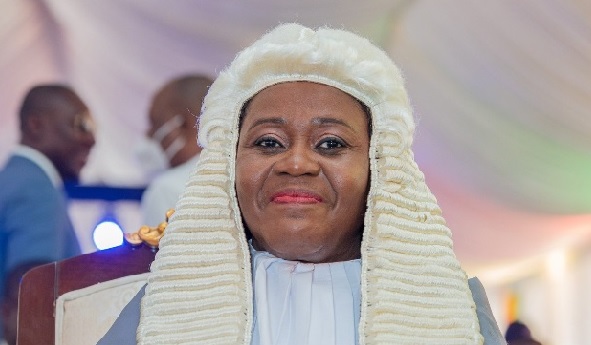A new national opinion poll conducted by Global InfoAnalytics reveals that a majority of Ghanaians support the removal of Chief Justice Gertrude Araba Esaaba Sackey Torkornoo from office.
According to the poll, 52% of voters surveyed backed efforts to remove the Chief Justice, while only 20% opposed the move. Another 18% remained neutral, and 10% said they had no opinion.
The findings come amidst rising political and legal tensions in the country and point to a significant dip in public confidence in the leadership of the judiciary’s top office.
Regional Breakdown
Support for the Chief Justice’s removal was highest in the Bono East and Western North regions (82%), followed closely by the Volta region (76%). In the Greater Accra region, which holds significant electoral weight, 58% of respondents backed her removal, with only 16% opposed.
Notably, only two regions—Ahafo and Upper East—had more respondents opposing the Chief Justice’s removal than supporting it.
Education level and political affiliation
The poll also found that voters across all educational backgrounds support the removal. Among respondents with tertiary education, 54% supported the removal versus 18% opposed. Support was even higher among those with only Junior High School education (57%).
Political affiliation showed a stark divide. While 83% of respondents identifying with the opposition National Democratic Congress (NDC) supported the removal, only 16% of New Patriotic Party (NPP) supporters did. Among floating voters, 46% were in favour, while 34% opposed the move.
Methodology
The poll was conducted between 7 April and 16 April 2025, using a sample size of 2,545 voters across all 16 regions of Ghana. The survey used live Computer Assisted Telephone Interviews (CATI), with a confidence level of 99% and a margin of error of ±1.51%.
The findings suggest that public sentiment on the performance of the Chief Justice is highly polarised and could shape legal and political discourse in the coming months.





